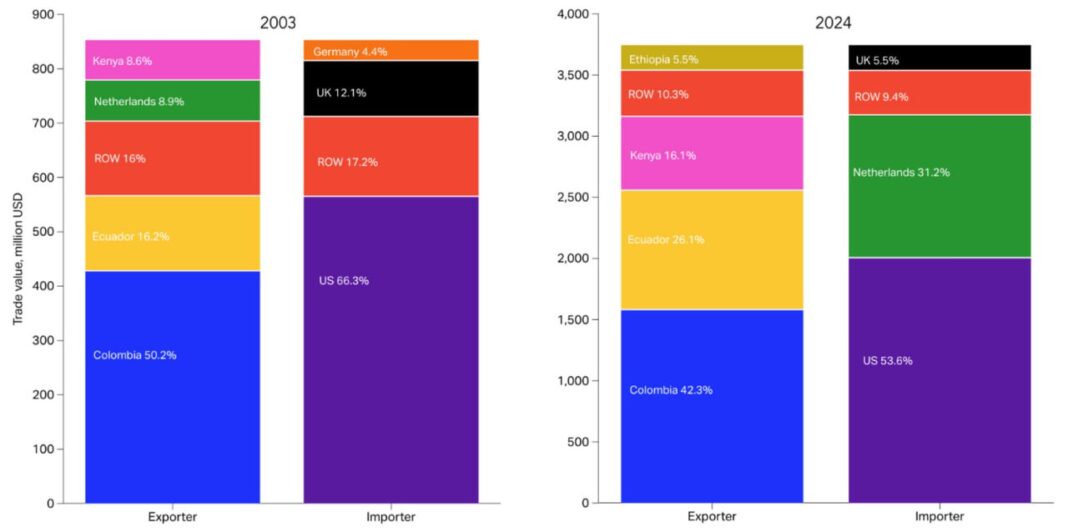A new report from the International Air Transport Association (IATA) highlights Ethiopia’s growing prominence in the global air-transported flower trade. The report, released on February 14, 2025, reveals a significant shift in the dynamics of the industry over the past two decades, with Ethiopia emerging as a key exporter alongside traditional powerhouses like Colombia and Ecuador.
According to IATA’s analysis of data from Global Trade Tracker, the value of the global air-transported flower trade has surged from USD 852 million in 2003 to USD 3.7 billion in 2024—a remarkable four-fold increase. This growth has been accompanied by a notable concentration of market share among a select group of exporting nations.
While Colombia remains a dominant exporter with a 42.3% market share in 2024, Ethiopia has made significant strides in the industry, becoming a notable newcomer that has pushed the Netherlands off the list of top exporters. This expansion is attributed to two primary factors: the reduction of tariffs and trade barriers through trade agreements, and advancements in air cargo capabilities.
“Trade agreements have reduced tariffs and barriers, increasing exports and opening markets for developing nations,” the IATA report stated. “Developments in air cargo, including improved refrigeration and logistics, ensured that flowers remained fresh and enabled seamless global distribution of large volumes on time.”
These advancements in air transportation have greatly facilitated the trade in perishable goods, including flowers, creating opportunities for emerging economies like Ethiopia to capitalize on their comparative advantages. The improved refrigeration and logistics networks are vital. It ensures that delicate flowers reach global markets in peak condition, preserving their quality and extending their shelf life.
On the import side, the United States continues to dominate, accounting for 53.6% of total imports in 2024. However, the Netherlands has risen to become the second-largest importer at 31.2%, serving as a main distribution center for flower re-exports.
As Ethiopia solidifies its position in the global flower trade, it is crucial for the country to continue investing in infrastructure, technology, and sustainable practices to ensure long-term competitiveness and growth. As the IATA report suggests, the increasing concentration of market share among a few key players underscores the importance of specialization and efficiency in this rapidly evolving industry.
The report concludes by playfully pondering which countries might have a comparative advantage in romance. While this question remains open for debate, there’s no doubt that Ethiopia has blossomed into a significant force in the global air-transported flower trade, showcasing its potential as a key player in the international market.







